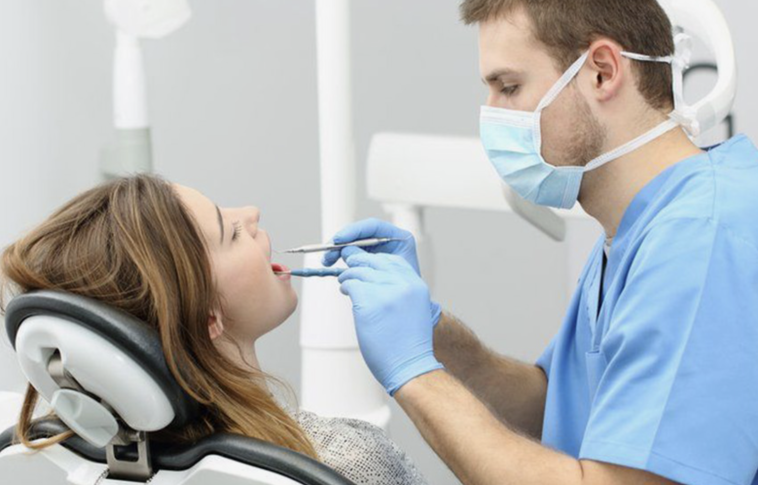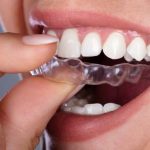If you need to drive more traffic to your dental practice website, pay-per-click (PPC) advertising could be the answer. The best part of PPC advertising for dental practices is that you’ll only pay when someone clicks on your ad; if no one clicks through, you won’t pay. And search engine PPC ads can be highly effective at driving website traffic.
Very often, people who need a dentist in their area turn to the internet to find one. PPC ads are a great way to help those people find you. By partnering with a digital marketing agency experienced in the dental practice marketing sector, you can achieve that.
If you’re new to dental PPC advertising, keep on reading. We’ll go over what you need to know to start a successful PPC campaign.
Expand Your Dental Practice with PPC Ads
According to Digitalauthority.me, more than 80% of people looking for a dentist do so online. That makes having a strong, online presence key to growing a dental practice. To achieve that, dentists need to implement a great digital marketing strategy, showcasing their practice and the services they provide.
A digital marketing agency that specializes in dental PPC can help you launch an effective marketing campaign that puts you on top of the search results. More than that, they’ll drive highly targeted traffic to your dental landing pages. Soon you’ll be attracting and engaging prospective patients, while also enhancing your online presence and reputation.
Dental PPC Keywords are Crucial
Choosing the right dental PPC keywords can ensure the success of your PPC ad campaign. By carefully researching and selecting your keywords, huge volumes of traffic can be driven to your practice’s website.
By choosing the right keywords, you can easily buy traffic from search engines like Bing and Google. Ads for your dental practice will appear at the top as a sponsored link when someone searches with one of your keywords. For example, if “tooth whitening” is one of the keywords you’ve successfully bid on, your website’s ad appears on the search results when someone searches for “tooth whitening” in your area.
In addition to generic dental keywords, it’s also very important to use locational keywords. These identify the area where you practice dentistry. If you are a dentist in Austin, TX you don’t want your ads showing up all over the country. You need new patients in Austin, not Phoenix or Baltimore.
To research your keywords, you’ll need to rely on proven keyword tools and analytics. In this way, you can identify the dental keywords that will generate clicks. Moreover, you’ll also need to keep the following in mind:
· Keyword grouping
· Negative keywords
· Bid optimization
Keyword grouping involves bringing together related search terms that are likely to generate the most clicks. Some combinations of keywords are better than others when bidding. With this in mind, a dental-specific digital ad agency can help you to choose the best dental PPC keywords for success.
Using negative keywords can help you to filter out irrelevant clicks. Negative keywords tell the search engine that you do not want your ads showing for specific searches or on certain websites.
Bid optimization makes sure that most of your advertising budget applies to your best-performing keywords. By focusing on your best keywords, your bids will likely generate the most clicks and more conversions. Keywords form the foundation of your dental PPC campaigns, so you want to make sure that your keywords are effective.
Building a Quality Landing Page
Your landing page ultimately determines the success of your dental PPC campaign. It’s here where your click-throughs will be converted into new patients.
An optimized landing page cuts down on your advertising costs by optimizing the value of your click-throughs. Your landing page needs to focus on the keyword phrases used in the associated ads. In this way, you’ll gain more conversions. For example, if your ad keyword is for tooth whitening, your landing page should go over the tooth whitening services you provide.
Creating an optimized landing page isn’t hard. Just keep it simple, maintain focus on the relevant keywords, and include a conversion tracking code.
A landing page focused on the specific needs of your ad’s target audience produces better results. For example, if your ad is for tooth whitening, don’t throw orthodontics into the landing page. It’s unlikely that the people who clicked through want that service, and it will only distract them from the main topic. Your ad needs to match the content of the landing page exactly.
A conversion tracking code might be the only way to assess the traffic your ad is attracting. Conversion tracking codes allow the search engine to track all of the conversions generated by your landing page. Also, a landing page relevant to the keywords lowers your bounce rate and increases your quality score.
Keep your dental PPC marketing as straightforward and as simple as possible. Your keywords should match what potential patients want and need, and your landing page needs to convince them that you are the dentist who can fulfill those needs.
An Effective Dental PPC Campaign Needs Great Copy
Both your landing page and your PPC ads need great copy. Your ad titles need to grab attention and encourage clicks. Once someone clicks through, your landing page needs to sell your services and convert that click into a new patient.
However, writing engaging and effective ad copy takes time, creativity, and experience you may not have. Considering its importance, it’s worthwhile outsourcing this to a professional copywriter.
If you feel like trying your hand at copywriting, focus on your keywords, highlighting the benefits your service can provide. You’ll also need to work in “calls to action.” These could be phrases like “schedule an appointment now” or “contact us now to learn more.”
Be sure that your keywords appear at the beginning of your ad. Also, make sure that they are in the title of your landing page and sprinkled throughout the page. Moreover, be sure to include a call to action, to convert your website visitors into new patients.




